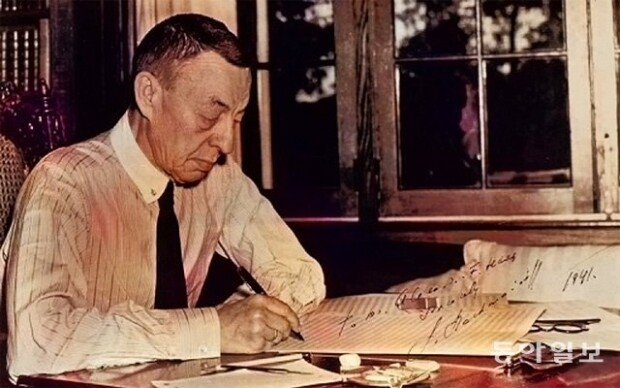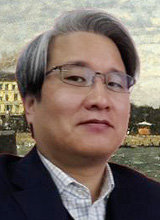Even Rachmaninoff gave up on his Symphony No. 2
Even Rachmaninoff gave up on his Symphony No. 2
Posted July. 28, 2020 07:56,
Updated July. 28, 2020 07:56


The common belief is that there is no trend in classical music. Unlike pop songs whose charts get updated every single day, the list of popular classical music pieces remains unchanged.
However, this is not always the case. The Four Seasons composed in 1723 by Antonio Vivaldi, which is No. 1 on various classical music charts all around the world, was barely known before World War II. It was when an Italian chamber orchestra called “I Musici” released an album in 1955 and performed The Four Seasons in concerts around the world that the piece gained in popularity.
The same goes for The Symphony No. 2 by Sergei Rachmaninoff. This hour-long piece first came into the world in 1908. Although it is not as long as symphonies by Gustav Mahler or Anton Bruckner, it was criticized for being “boring” and “slow” after it was premiered.
The problem was that Rachmaninoff was incredibly sensitive. His mind was so fragile that he suffered from neurasthenia when his Symphony No. 1, which he wrote at the age of 24, received negative reviews. With such fragility, he could not defend his Symphony No. 2. He even declared that conductors can cut it short as they wish. The piece was rarely performed, and, when it was performed or recorded, it was randomly shortened or edited.
However, things changed when conductor André Previn went on a tour in the Soviet Union and Asia in 1971 with London Symphony Orchestra where he was a chief conductor. The orchestra performed in Moscow, St. Petersburg, Tokyo, Osaka, Nagoya, Seoul, and Hong Kong.
Back then, the concert in Seoul was sponsored by The Dong-A Ilbo and held at Sejong Center, and violinist Chung Kyung-wha played Tchaikovsky’s concerto.
Previn chose Rachmaninoff’s Symphony No. 2 as the main piece of the tour. He probably made the choice because he loved the piece. The German-born American conductor confessed that conducting it over and over again on the tour helped him develop a deeper understanding of the music and truly love it.
In 1973, Previn released a recording of this piece with London Symphony Orchestra. Many other conductors followed suit, and Rachmaninoff’s Symphony No. 2 is no longer cut short. Conductor Paul Kletzki released a recording of the full piece five years before Previn, but it was Previn’s recording that made the piece so popular.
It became even more popular in 1976 when Eric Carmen, a graduate from the Cleveland Institute of Music, rearranged the third movement of the piece to write a pop song called “Never Gonna Fall in Love Again.” His song “All by Myself” also heavily borrows from the second movement of Rachmaninoff’s Piano Concerto No. 2, which was also featured in the film “Bridget Jones’s Diary.”
Rachmaninoff’s Symphony No. 2 feels very autumnal. It reminds me of the early fall sunshine in September in South Korea. Incheon Philharmonic Orchestra conducted by Lee Byeong-uk performs this piece at SAC Classical Festival on August 6. It will also play the Violin Concerto by Samuel Barber, a 20th-century American composer, with violinist Yang In-mo and Adagio for Strings by Barber, which was famously featured in Platoon.
gustav@donga.com
Headline News
- Joint investigation headquarters asks Yoon to appear at the investigation office
- KDIC colonel: Cable ties and hoods to control NEC staff were prepared
- Results of real estate development diverged by accessibility to Gangnam
- New budget proposal reflecting Trump’s demand rejected
- Son Heung-min scores winning corner kick







